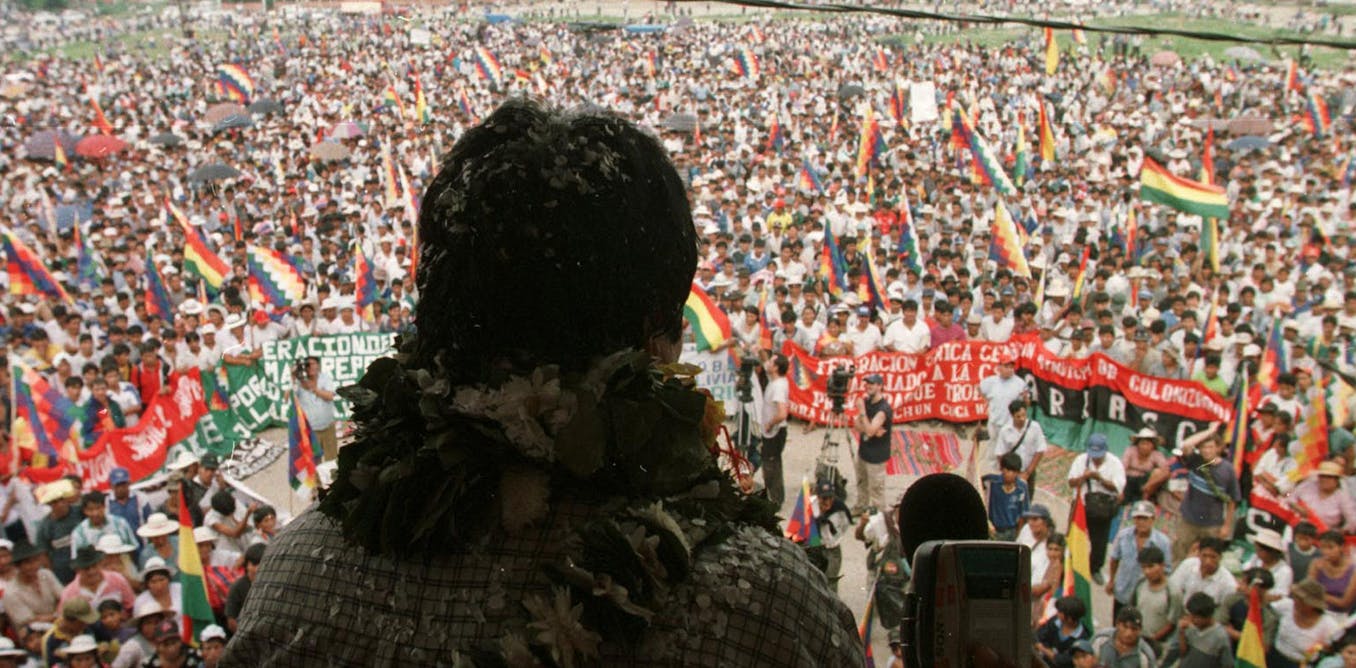
- Select a language for the TTS:
- UK English Female
- UK English Male
- US English Female
- US English Male
- Australian Female
- Australian Male
- Language selected: (auto detect) - EN
Play all audios:
Worldwide, it has been a rough year for democracy. Citizens in the UK, the United States and Colombia made critical decisions about their nations’ future, and – at least from the perspective
of liberal values and social justice – they decided poorly. Beyond the clear persistence of racism, sexism and xenophobia in people’s decision-making, scholars and pundits have argued that
to understand the results of recent popular votes, we must reflect on neoliberalism. International capitalism, which has dominated the globe for the past three decades, has its winners and
its losers. And, for many thinkers, the losers have spoken. CHALLENGING NEOLIBERALISM There’s something to the analysis that right-wing populism is a response to the failures of
globalisation. But is it the only response? My fieldwork in South America has taught me that there are alternative and effective ways to push back against neoliberalism. These include
resistance movements based on pluralism and alternative forms of social organisation, production and consumption. In Argentina and Bolivia, the “genuine challenge[s] to neoliberal
rationality”, to use Wendy Brown’s words, confirm that the universe of resistance to globalisation is much bigger, and draws from more diverse social contexts, than most analysts suggest.
ANDEAN RESISTANCE, ONE COCA FIELD AT A TIME In Bolivia’s rural Chapare region, people struggle not just with the free market, which has led to unemployment and natural resource exploitation,
but also with a negligent state unable to satisfy basic needs and with the fallout from the war on drugs. The latter, a key American neoliberal tool has forced coca farmers to eradicate
their own crops because of the ban on coca and its derivatives. In the Andes, coca leaf has strong historical and cultural roots and is widely consumed. Growing it is also the only way for
many people to make a living, since neoliberal policies of the 1980s and 1990s despoiled the region of industrial jobs, particularly mining. Chapare’s _cocaleros_, or coca farmers, have
developed several strategies to defend their livelihood and their human rights. Among the best-known is disruptive action, like mass demonstrations and the blockading of key transit routes.
This strategy may also include direct, violent confrontations with police and military. The Chapare region both subverts and assists the state by being self-sustaining in the provision of
social services and goods. Pooling resources from their own communities, international agencies and the national government, citizens have organised to take charge of their own education,
justice, health-care and housing. Still, they participate fully in Bolivian democracy. The Chapare regularly sends candidates who represent its interests to compete in local, regional and
national elections. Such everyday resistance has proven quite successful. Since 1994, Chapare’s farmers have seen numerous local and national wins in both the executive and legislative
branches. Bolivia’s president, Evo Morales, is a coca farmer; he still leads the Chapare coca growers’ federation. With increased political representation, farmers have actually changed
coca-leaf laws. Most notably, in a policy called “social control”, families are now allowed to grow one _cato_ (1.6 square km) of coca, with enforcement exercised by the community. Further
infuriating the US, Bolivia expelled the Drug Enforcement Agency, which had condemned the coca-leaf legalisation. Such actions directly undermine the neoliberal paradigm. In the process,
Chapare’s farmers have strengthened their community ties and solidarity with such other marginalised populations as peasants and Indigenous groups. Along the way, disagreements, primarily
around environmental issues, have arisen. But the region has shown how human beings can live collaboratively in a society that takes into account others’ diverse realities and needs.
MULTISECTORAL MOVEMENTS IN ARGENTINA Contemporary Argentina’s urban “multisectorial movements” comprise a divers group that includes the unemployed, union workers, students, migrants,
housewives, artist and scholars. The movements originate in the _piquetero_ protests that followed Argentina’s economic crisis of 2001. With poverty at 50% during that time, picketers would
frequently protest by blocking streets in downtown Buenos Aires to demand jobs and a living wage. As employment improved under the left-leaning governments of Néstor Kirchner (2003-2007) and
Cristina Fernández (2007-2015), the _piqueteros_ began to diversify their demands to include other unsatisfied needs such as dignity, solidarity, access to social services, and political
participation. The ideology of the movements stipulates that neither the state nor the market can satisfy these demands. Thus, society must provide solutions. Today, the movements’ main
activities include providing health services, public spaces and access to education to marginalised communities in big cities such as Buenos Aires, La Plata and Rosario. To provide these
services, they collectivise resources – obtained from the government in the form of subsidies – to launch different initiatives, such as restaurants and work studios that employ community
members. Funds may also support other community needs. Like the Bolivian coca growers, Argentina’s multisectoral movements seek to spread a counter-capitalistic message to broader society.
This radical democratic process allows both groups to develop strong solidarity ties with constituent communities. By focusing on empowerment and action, they raise consciousness among
citizens that everyday people are implicated in public issues and encourage them to take a stand. The multisectoral movements have reopened a national conversation in Argentina about
democracy, modes of production and consumerism – a structural debate that neoliberalism had theoretically put to rest. As these two stories affirm, there’s hope yet for communities
beleaguered by globalisation to act in democratic solidarity, not fear-based nativism. Populism is not the only relevant way to resist. So, the question becomes: how can we get
community-based alternatives into the public debate – and onto the global political agenda?








.jpg?rect=0%2C0%2C1920%2C1008)
